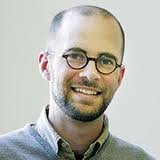National Institute of Health (NIH)
See the following -
"Game-Changing" Study Links Cellphone Radiation to Cancer
 It's the moment we've all been dreading. Initial findings from a massive federal study, released on Thursday, suggest that radio-frequency (RF) radiation, the type emitted by cellphones, can cause cancer. The findings from a $25 million study, conducted over two and a half years by the National Toxicology Program (NTP), showed that male rats exposed to two types of RF radiation were significantly more likely than unexposed rats to develop a type of brain cancer called a glioma, and also had a higher chance of developing the rare, malignant form of tumor known as a schwannoma of the heart. The effect was not seen in females...
It's the moment we've all been dreading. Initial findings from a massive federal study, released on Thursday, suggest that radio-frequency (RF) radiation, the type emitted by cellphones, can cause cancer. The findings from a $25 million study, conducted over two and a half years by the National Toxicology Program (NTP), showed that male rats exposed to two types of RF radiation were significantly more likely than unexposed rats to develop a type of brain cancer called a glioma, and also had a higher chance of developing the rare, malignant form of tumor known as a schwannoma of the heart. The effect was not seen in females...
- Login to post comments
7 Signs You May Have A Vitamin D Deficiency
...In fact, about 80 to 90 percent of our vitamin D comes from sun exposure, says Dr. Michael F. Holick, M.D., Ph.D., a professor of medicine, physiology and biophysics at the Boston University Medical Center who has studied and published on vitamin D for decades. "The problem is [many of us] assume if you have a healthy diet that you're getting enough of every nutrient," he says...
- Login to post comments
AB 609: California Leads On Open Access To Publicly Funded Research
California has become the first state to mandate open access for the products of some taxpayer-funded research. On September 29 Governor Jerry Brown signed into law the California Taxpayer Access to Publicly Funded Research Act, coauthored by Assemblyman Brian Nestande (R–Palm Desert) and Assemblyman Mike Gatto (D–Los Angeles)...
- Login to post comments
Academic Journals: The Most Profitable Obsolete Technology In History
The music business was killed by Napster; movie theaters were derailed by digital streaming; traditional magazines are in crisis mode--yet in this digital information wild west: academic journals and the publishers who own them are posting higher profits than nearly any sector of commerce...
- Login to post comments
Can A Mobile App Boost The Signal About Rare And Neglected Diseases?
One of the great things about mobile apps is that they are low-profile, easy-to-adopt tools that theoretically could remove traditional barriers between information sources...Nowhere is this more evident, or more important, than in the area of rare and neglected disease research, where disparate (and often desperate) information seekers need better ways to access and share information. Read More »
- Login to post comments
Chemist's Crusade For Open-Source Cancer Research
Isaac Yonemoto is a chemist, but he's been writing software code since he was a kid...[He's] using open source software techniques to kickstart the world of cancer research...
- Login to post comments
Elsevier Backs Off RWA Support; Still Opposes Mandated Open Access
Scientific journal publisher Elsevier today withdrew its support for the Research Works Act (RWA), a bill which would have prohibited open access mandates for federally funded research. The publisher had been the target of a boycott among academics, as LJ reported. At press time, 7,486 researchers had pledged not to publish, referee or do editorial work for Elsevier’s journals. Read More »
- Login to post comments
Experts Examine Funding of Studies of Hospital Associated Bacterial Pathogens
Hospital-associated infections (HAIs) are associated with a considerable burden of disease and direct costs greater than $17 billion. The pathogens that cause the majority of serious HAIs are Enterococcus faecium, Staphylococcus aureus, Clostridium difficile, Klebsiella pneumoniae, Acinetobacter baumannii, Pseudomonas aeruginosa, and Enterobacter species, referred to as ESCKAPE pathogens. Read More »
- Login to post comments
FDA Targets Essentials Oils: Sees EOs As Threat To New Ebola
The FDA issued warning letters this week to the two largest distributors of essentials oils in the United Sates, Young Living and dōTERRA. The FDA is claiming that their products are being marketed as unapproved drugs...
- Login to post comments
Four Things We Can Do Now to Unlock the Cure for Cancer
 As a community we are capable of working together to achieve greater things. If we marshal our resources to work together, I believe we can unlock the cure for cancer. This is a rare opportunity. We need to change the models and shift our culture towards collaboration. We can’t just tweak around the edges — patients and their families can’t afford to wait. An alternative system, where all publicly-funded research and data are required to be shared would allow authors to unlock their content and data for re-use with a global audience, and co-operate towards new discoveries and analysis.
As a community we are capable of working together to achieve greater things. If we marshal our resources to work together, I believe we can unlock the cure for cancer. This is a rare opportunity. We need to change the models and shift our culture towards collaboration. We can’t just tweak around the edges — patients and their families can’t afford to wait. An alternative system, where all publicly-funded research and data are required to be shared would allow authors to unlock their content and data for re-use with a global audience, and co-operate towards new discoveries and analysis.
- Login to post comments
Generation Open: Sneak Peek Into Science’s Future At OpenCon 2014
...Michael Carroll is a Professor of Law and one of the founders of the Creative Commons. He was welcoming over a hundred enthusiastic students, student organizers, and early career researchers yesterday to their first international gathering on open access, OpenCon 2014...
- Login to post comments
How Crowdfunding And Open Source Research Will Fight Cancer
...A researcher named Isaac Yonemoto is applying some of the concepts of open source software initiatives to cancer research. Yonemoto is undertaking Project Marilyn, a campaign to develop a patent-free anticancer drug...
- Login to post comments
John Halamka Uses Big Data Analytics In Healthcare To Fight Wife's Cancer
 When John Halamka, M.D., CIO of Beth Israel Deaconess Medical Center in Boston, and his wife, Kathy, found out she had stage 3 breast cancer in 2011, they turned to big data analytics in healthcare to find the best treatment plan. Fortunately for Halamka and his wife, the Boston area is home to 17 Harvard-University-affiliated hospitals, including Beth Israel, that have opened their data for queries via a free open source, Web-based application called i2b2. Any medical record system in the country can connect to i2b2's database and EHR, Halamka said.
When John Halamka, M.D., CIO of Beth Israel Deaconess Medical Center in Boston, and his wife, Kathy, found out she had stage 3 breast cancer in 2011, they turned to big data analytics in healthcare to find the best treatment plan. Fortunately for Halamka and his wife, the Boston area is home to 17 Harvard-University-affiliated hospitals, including Beth Israel, that have opened their data for queries via a free open source, Web-based application called i2b2. Any medical record system in the country can connect to i2b2's database and EHR, Halamka said.
- Login to post comments
Kitware Unveils Open-Source Bioinformatics Application - Visomics
In an effort to provide a tool that helps in accelerating the pace of research through definition of relationships between biological analytes and biomarkers, Kitware – a technology company – has unveiled an open-source bioinformatics application - Visomics.
- Login to post comments
Next Steps In Reproducibility
In last week’s Nature and Science, the outcome of a meeting convened by NIH, Nature, and Science to discuss the issue of lack of reproducibility in the basic science research literature was published...
- Login to post comments